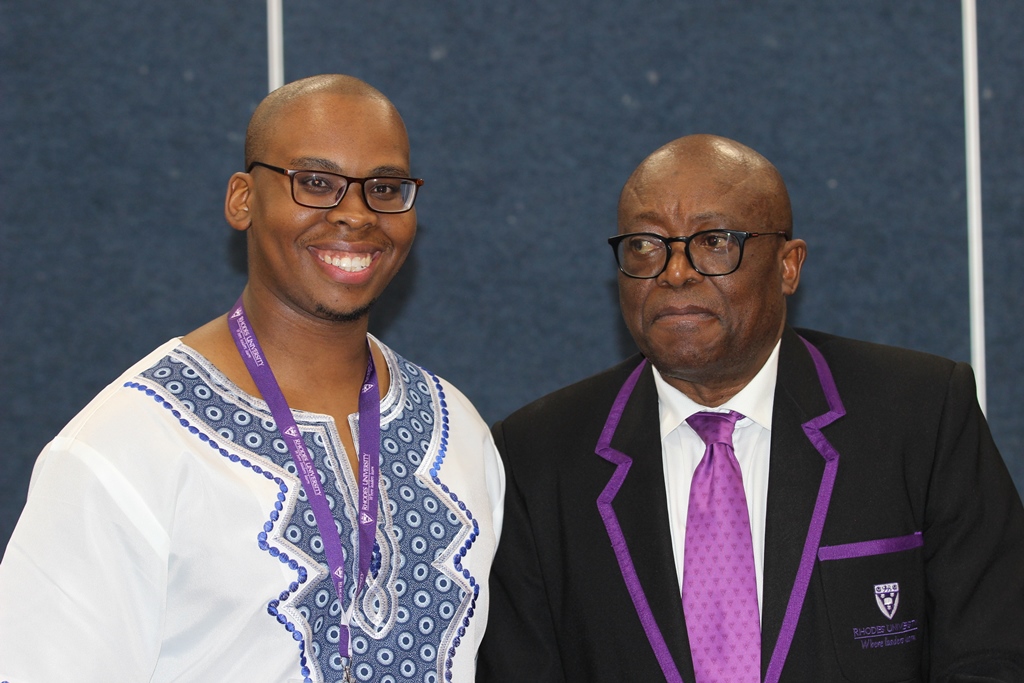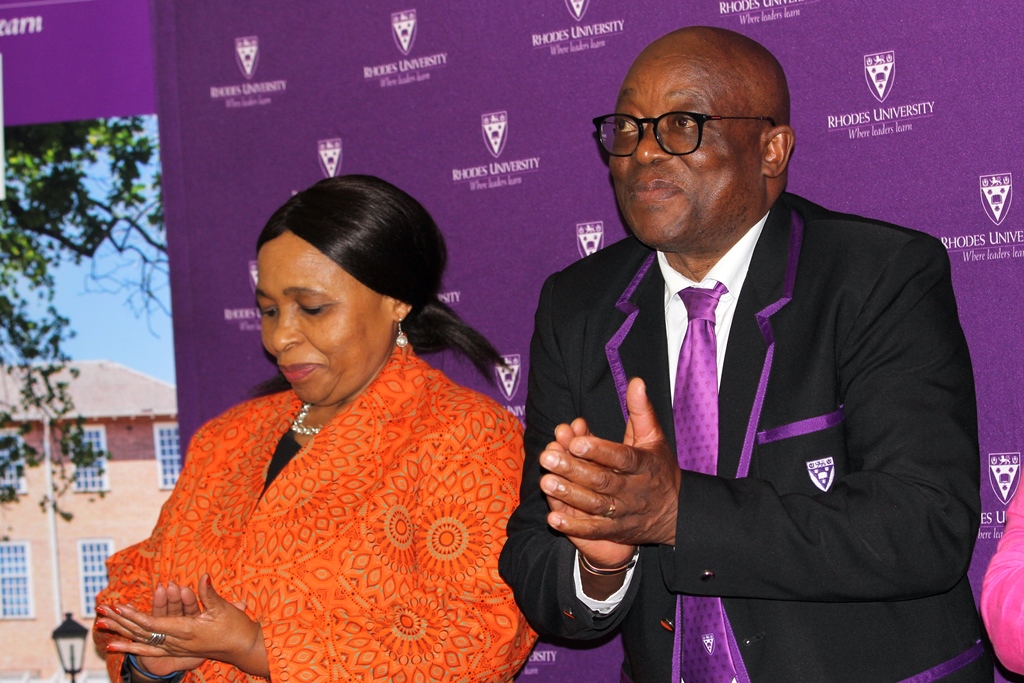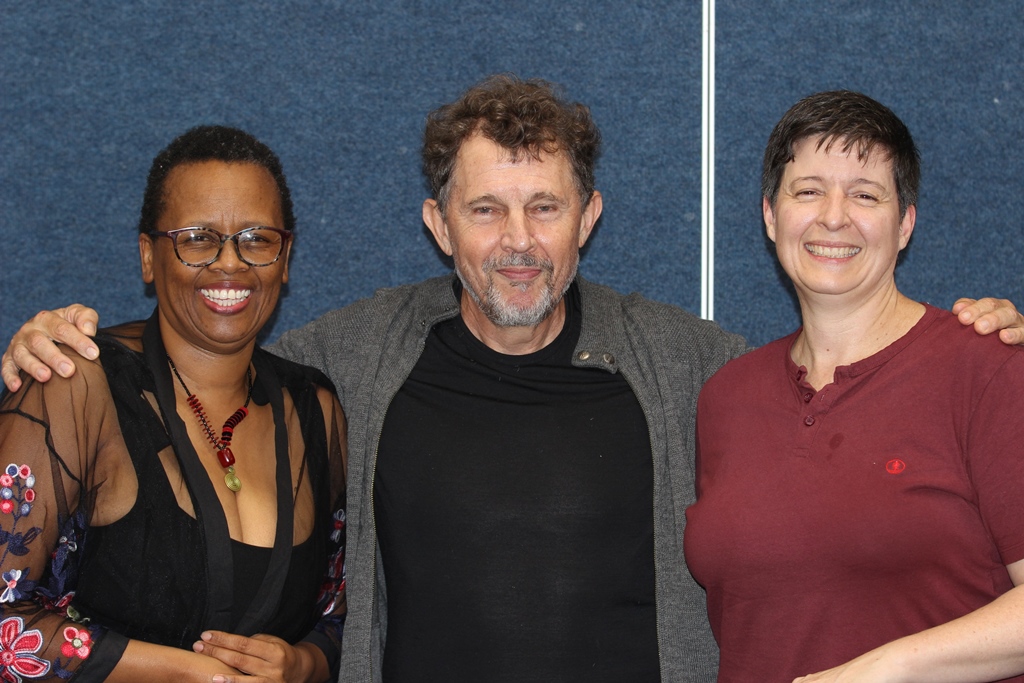By Steven Lang
Entrepreneurship is often considered an attribute of capitalism, yet this was not the case at the launch of the Rhodes University – Local Economic Development (RU-LED) Innovation Lab on Friday evening. The emphasis at the event was clearly on entrepreneurship for the benefit of society as a whole.
It was all about harnessing the ingenuity of the students and youths of Makhanda in an ethical manner to improve socioeconomic conditions for all concerned. This means that Rhodes students will work with the young people of Makhanda to ignite innovative business opportunities that can provide employment and a better standard of living for the community at large.
Dr Pakiso Tondi, the University’s Director of Student Affairs opened proceedings with a welcome address to students, faculty members and residents. Senior Rhodes academics, as well as a Makana Councillor, then delivered messages of support and endorsement of the initiative.

A representative of the RU-LED working team, Bonolo Moche, said the Innovation Lab was borne out of the recognition that the demographics of Rhodes students have transformed in recent years. This change represented “a pivotal challenge: the evolving socioeconomic landscape of our student body”.
He, therefore, explained that “Our mission is bold: to establish a resilient platform for ethical entrepreneurship not only within the confines of Rhodes University but extending our reach to the broader community of Makana Municipality.”
The RU-LED team had identified five essential stepping stones to achieve this bold mission. Firstly, Moche said the Innovation Lab would support student entrepreneurs by providing them with resources, mentorship and, most importantly, by “fostering a culture of innovation and daring”.
The notion of ‘daring’ was central to the thinking of many of the speakers, including Prof. Pedro Tabensky, Director of the Allan Gray Centre of Leadership Ethics. He said that as a teacher, he wants to trigger a creative spirit and that what he sees as a sign of success “is when students do things I wouldn’t have dreamed of doing”.
Secondly, Moche said it was vital to bridge the chasm between academic research and its commercial application. Several speakers acknowledged that innovative research at the University was not being effectively utilised in the entrepreneurial sense.
A third objective of the Innovation Lab is to extend the benefits of entrepreneurship beyond the confines of Rhodes University. It should forge partnerships with local businesses and community organisations in order to enrich the broader ecosystem.
In an effort to enrich this collaboration, the youngest Councillor on the Makana Council, Mzobanzi Nkwentsha, offered his support for the initiative. His endorsement is particularly relevant as he is the Councillor for Ward 12, where Rhodes University is situated, and he is Head of Local Economic Development and Planning at Makana Municipality. He is, therefore, well placed to encourage partnerships between Rhodes students and local businesses.
Nkwentsha acknowledged that “the Makana economy is ravaged by high unemployment, high levels of inequality and poverty”; therefore, the community must seek economic solutions to these problems.
He blamed South Africa’s rapid integration into the global economy for the poor state of the country’s economy. He explained that globalisation came with the rapid introduction of the services sector into a low-skilled labour market.
Thus, globalisation resulted in the de-industrialisation of productive sectors such as agriculture and mining and allowed informal trading and the sale of alcohol to dominate township economies.
The Innovation Lab’s fourth objective is to invest in skills development, workshops, training sessions and networking opportunities. This investment aims to produce better entrepreneurs and to enhance the employability of the youth.
Moche said that the fifth and final objective is “to foster the growth of a vibrant entrepreneurial ecosystem, where students, faculty, industry experts, investors and governmental bodies converge driving sustainable economic growth and societal welfare”.



